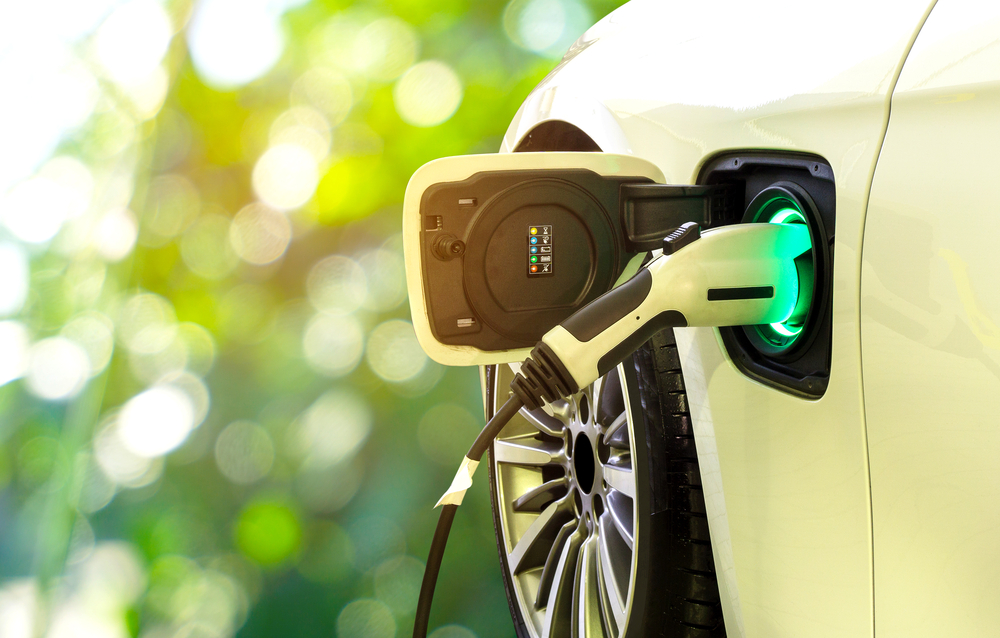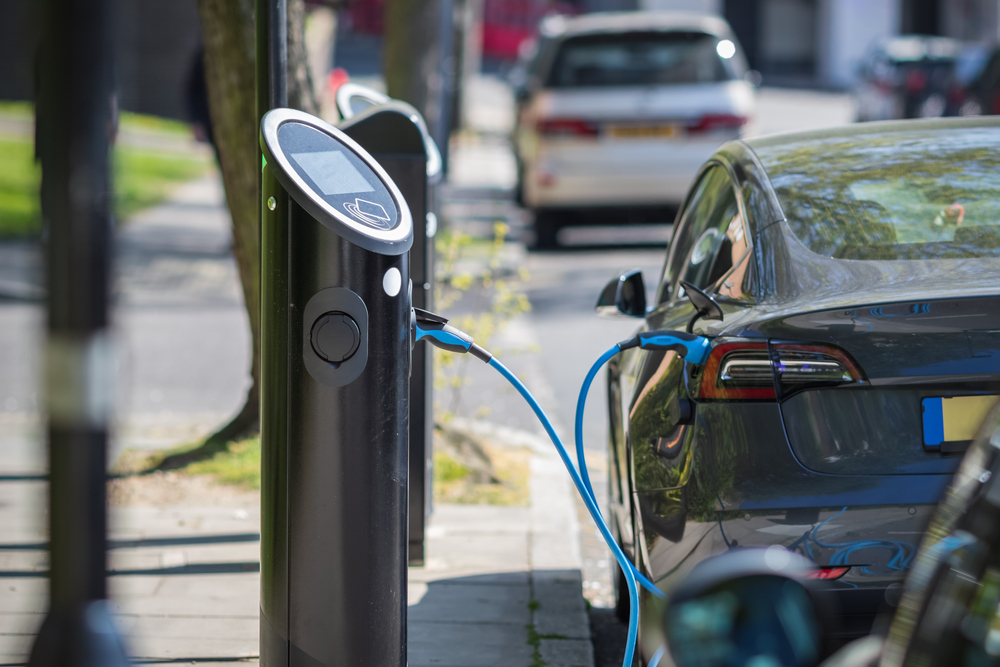*The information in this article is accurate from May 2024.
The UK will fall into line with EU countries and other global markets by banning the sale of all new petrol and diesel cars and vans from 2035. This follows a change of policy from the UK government which originally proposed to introduce the far-reaching measures in 2030.
The ban on all new petrol and diesel vehicle sales after 2035 also includes hybrid and plug-in hybrid cars. It is being introduced to reduce harmful emissions in line with the government’s Net Zero target for decarbonising all sectors of the UK economy by the year 2050.
If you own a petrol or diesel vehicle, or are considering buying one, find out how you’ll be affected by the 2035 ban.
or call us on 0208 329 1150
Skip Ahead
- What Does the 2035 Diesel and Petrol Vehicle Ban Mean?
- What Should I do About the Diesel and Petrol Ban?
- Can I Still Drive my Diesel or Petrol Car or Van After 2035?
- Does the 2035 Petrol and Diesel Ban Include Vans?
- Is Financial Help Available for the Transition to Electric Vehicles?
- Can the National Grid Cope with More EVs on the Road?

Diesel and Petrol Cars – The Full Lowdown
What Does the 2035 Diesel and Petrol Vehicle Ban Mean?
Put simply, from 2035 the only new cars and vans that can be sold in the UK will be fully electric vehicles (EVs). Hydrogen-powered vehicles, which is an emerging market, could also be sold if technology and infrastructure have progressed sufficiently by then.
The Zero Emission Vehicle Mandate (ZEV) provides a practical framework for the nation’s gradual switch to EVs leading up to the total ban on petrol and diesel vehicles in 2035.
This requires 80% of new cars and 70% of new vans sold in Great Britain to be zero emission by 2030, rising to 100% by 2035.
This timeframe puts the UK in line with other global economies including Canada, Germany, France, and Sweden, who are also working towards a 2035 end-of-sale date for new petrol and diesel vehicles.
What Should I do About the Diesel and Petrol Ban?
UK car ownership is at a crossroads for consumers as it’s hard to guess what cars will be available to buy new in the coming years. Though generally more expensive to purchase than their petrol or diesel equivalents, EVs will undoubtedly make sense for some drivers, especially those who don’t make long trips on a regular basis. Not only that, but beneficial tax rates and congestion charge exemptions in London and other cities remain in place until 2025.
Meanwhile, buying a new petrol or diesel vehicle is still an attractive option for some drivers. They are cheaper than their EV equivalent and you won’t need to plan your journeys around charging stops, though many recent electric models boast impressive ranges of 200 miles and more. Similarly, new petrol or diesel vehicles won’t be affected by congestion charges and clean-air zones in the way that older, more polluting, combustion engine versions will.
To repeat, there is no plan in the pipeline to prohibit the use or sale of existing petrol and diesel vehicles, and it only applies to the sale of new models after 2035. So, whether you own a petrol, diesel, or electric car, you’ll still need to protect yourself with the right vehicle insurance.

Can I Still Drive my Diesel or Petrol Car or Van After 2035?
Yes, you can still drive your petrol or diesel car or van after 2035 as the ban only relates to the sale of new vehicles, and there are no plans to outlaw the sale or use of second-hand cars at this stage. Therefore, current and second-hand models will be unaffected by the ban and can be bought and sold freely as they are now. This means that older petrol and diesel vehicles along with both conventional and plug-in hybrids are all likely to remain in use long after the 2035 deadline.
However, while you can continue to drive your current petrol or diesel vehicle after 2035, it’s likely to cost you considerably more to do so. As the number of clean air zones such as London’s Ultra Low Emissions Zone (ULEZ) continues to rise, and more car-free cities are introduced, it’s certain to mean that taking your petrol or diesel vehicle into these areas will come at a considerable cost, thus pushing drivers towards the EV market.
Additionally, with EVs due to start paying road tax from 2025, it’s inevitable that older, more polluting vehicles will eventually be taxed at a higher rate than they presently are. The same applies to owners of classic cars which can still be driven after 2035 but are likely to become an increasingly expensive luxury due to high taxation or even a shortage of petrol and diesel fuelling stations.
The current Vehicle Excise Duty (VED) rates for petrol and diesel vehicles compared to EVs are listed below. These rates are current up to and including April 2024 but may be subject to change thereafter.
Vehicle Excise Duty (VED) Rates 2023-2024 (April – April)
| CO2 emissions – combined (g/km) | 0 | 1-50 | 51-75 | 76-90 | 91-100 | 101-110 | 111-130 | 131-150 | 151-170 | 171-190 | 191-225 | 226-255 | Over 255 |
| First Year VED (electric vehicles) | £0 | – | – | – | – | – | – | – | – | – | – | – | – |
| First Year VED (petrol and RDE2 diesel) | – | £10 | £30 | £130 | £165 | £185 | £210 | £255 | £645 | £1,040 | £1,565 | £2,220 | £2,605 |
| First Year VED (alternative fuel vehicles) | – | £0 | £20 | £120 | £155 | £175 | £200 | £245 | £635 | £1,030 | £1,555 | £2,210 | £2,595 |
| First Year VED (diesel) | – | £30 | £130 | £165 | £185 | £210 | £255 | £645 | £1,040 | £1,565 | £2,220 | £2,605 | £2,605 |
| Annual VED – second year onwards (standard value for electric vehicles) | £0 | – | – | – | – | – | – | – | – | – | – | – | – |
| Annual VED – second year onwards (standard rate for petrol and diesel) | – | £180 | £180 | £180 | £180 | £180 | £180 | £180 | £180 | £180 | £180 | £180 | £180 |
| Annual VED – second year onwards (standard rate for alternative fuel vehicles) | – | £170 | £170 | £170 | £170 | £170 | £170 | £170 | £170 | £170 | £170 | £170 | £170 |
| Annual VED – second year onwards (electric vehicles over £40,000) | £335 | – | – | – | – | – | – | – | – | – | – | – | – |
| Annual VED – second year onwards (petrol and diesel cars over £40,000) | – | £570 | £570 | £570 | £570 | £570 | £570 | £570 | £570 | £570 | £570 | £570 | £570 |
| Annual VED – second year onwards (alternative fuel vehicles over £40,000) | – | £560 | £560 | £560 | £560 | £560 | £560 | £560 | £560 | £560 | £560 | £560 | £560 |
Does the 2035 Petrol and Diesel Ban Include Vans?
Yes! Vans – or light goods vehicles (LGVs) – are included in the 2035 ban. EV technology has advanced rapidly for vans, just as it has for cars. As a result, new electric-powered vans are plentiful, with a wide variety of models capable of travelling in excess of 200 miles on a single charge.
These E-vans offer similar cargo capacity to fossil-fuel models, and customer choice is only going to expand in the coming years.
The initial cost of an E-van is likely to be higher than petrol and diesel models, though that can be offset by savings that can be made through lower running and maintenance costs plus a reduction in servicing fees.
Is Financial Help Available for the Transition to Electric Vehicles?
In 2020, the UK Government pledged £1.3 billion of investment to fund more EV chargepoints for homes, streets, and highways across England to help support the transition from fossil-fuel vehicles. An additional £582 million in grants was also made available to encourage people and businesses into EVs and PHEVs.
On the downside, the government has so far resisted pressure from the car industry to use taxpayers’ money to provide added incentives for EV buyers. This follows the scrapping of the UK plug-in car grant in 2022, and there have been no cash incentives available to private buyers of EVs since.
The flip side is that company car buyers have access to major financial incentives for choosing EVs over petrol or diesel models which has sparked a boom in EV sales in the fleet sector.


Can the National Grid Cope with More EVs on the Road?
The National Grid is confident it can cope with the extra demand for electricity from EVs, stating “enough capacity exists.” It predicts that if every UK car owners switched to an EV today, demand would only increase by 10%.
Adopting proactive measures such as renewable energy sources and new nuclear partnerships will help the Grid meet future supply needs for electrifying transport. At the same time, the general public’s energy consumption is rejected to fall thanks to the growing use of day-to-day, energy-efficient products such as LED lightbulbs and solar-powered heating.
This confidence is aligned with the UK Government’s predicted trajectory for new EV sales in the coming years. Under its targets, EVs are expected to make up 22% of vehicle sales by the end of 2024, and 80% by 2030, by which time the government hopes to have met its pledge for 300,000 chargepoints across the UK.
It is, however, worth noting that all the major opposition parties to the Conservative government have pledged to reverse Prime Minister Rishi Sunak’s decision to delay the deadline for banning new petrol and diesel vehicle sales until 2035 and revert back to the original 2030 date. This could accelerate further change and uncertainty should the Conservatives lose the upcoming 2024 General Election.
Do You Need Insurance for Your Petrol, Diesel, or Electric Vehicle?
At Keith Michaels, we have over 30 years’ experience in the specialist car insurance market.
From performance cars to imported cars and electric vehicles, contact us today for a quote.


